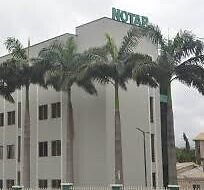The Federal Government of Nigeria has announced a sweeping plan to track all unpaid loans through the National Identification Number (NIN) in a bid to clean up the country’s credit system and fight corruption.
This development was revealed by Uzoma Nwagba, Managing Director of the Nigerian Consumer Credit Corporation (CREDICORP), during a “Meet the Press” briefing in Abuja. According to him, the government is now building a centralised credit infrastructure where all lenders — from commercial banks to microfinance institutions — must report the credit performance of borrowers.
“Every Nigerian will have an accurate and traceable credit score. No matter where the loan originates, unpaid credit will be tracked and recoverable,” Nwagba explained.
Repayment or Restrictions: What the New Credit Rule Means
Under the new structure, defaulters may face tough consequences. Nwagba warned that loan repayment will no longer be optional, as delays or defaults could result in serious limitations on basic civil services. These may include restrictions on passport renewal, access to driving licences, and even tenancy agreements.
The CREDICORP boss also stressed the agency’s broader goal of reducing the temptation for corruption by expanding access to legitimate credit. “Corruption becomes less comfortable when your basic needs are already met,” he noted.
In the long run, the credit reform aims to normalise responsible borrowing and encourage financial inclusion across all sectors of Nigerian society.
YouthCred Aims to Rebuild Financial Confidence
The government’s credit revolution is also targeting Nigeria’s younger population through a bold new initiative called YouthCred. The programme is expected to launch with 400,000 beneficiaries — beginning with members of the National Youth Service Corps (NYSC) — and will cater to individuals aged 18 to 35.
According to Mrs Olanike Kolawole, Executive Director of Operations at CREDICORP, “YouthCred is not just a credit product. It’s a generational investment in financial confidence, trust, and economic inclusion.”
Kolawole added that Nigeria needs an estimated ₦183 trillion in credit to power large-scale economic development. However, she emphasised that the government cannot meet this figure alone. The initiative, she said, hinges on private sector collaboration to create a functional credit culture.
“With the right infrastructure, lenders will be more confident, and Nigerians will have better access to credit,” she said.







4 replies on “Nigeria Moves to Link Loans with NIN for Credit Reform”
[…] of the key features of the portal is that users can now register a company with just the National Identification Number (NIN) of a director or business owner. Once the system confirms the NIN in real time, it sends a […]
[…] a Nigerian fintech startup, has launched Vida AI, a platform designed to make credit access easier for underserved communities across Africa. The new tool uses artificial intelligence to […]
[…] National Identity Management Commission (NIMC) has denied involvement in a growing fraud scheme involving over 12,000 Nigerian youths allegedly […]
[…] broader goal is to make responsible credit accessible to every Nigerian worker, removing policy and market barriers that limit financial […]